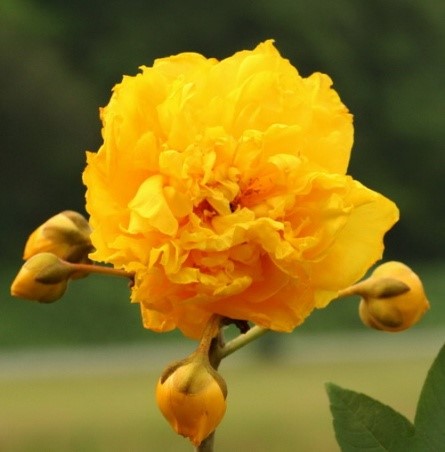

Dendrobium officinale Kimura et Migo, which is a perennial herbaceous herb native to south and southeast Asia, belongs to the Orchidaceae. D. officinale stems are commonly used as a traditional Chinese herbal medicine to restore physical vitality, as it contains many beneficial compounds such as flavonoids, polysaccharides, and alkaloids.
With the introduction of Prof. Dr. DUAN Jun, Dr. YU Zhenming from South China Botanical Garden of the Chinese Academy of Sciences showed that D. officinale stems accumulate considerable amounts of anthocyanins and flavonols. Research on flavonol biosynthesis has focused mostly on the more ubiquitous kaempferol and quercetin, while little information is available on the biosynthesis of myricetin. Notably, flavonol synthase (FLS), responsible for the biosynthesis of flavonols, has yet to be identified.
In this study, we identified a flavonol synthase, DoFLS1, from D. officinale. DoFLS1 is a cytoplasmic protein, which harbors conserved FLS-specific motifs. DoFLS1 was universally expressed in roots, stems, and leaves of juvenile and adult D. officinale plants. DoFLS1 expression was strongly correlated in juvenile and adult D. officinale plants with the flavonol levels. Transgenic Arabidopsis thaliana expressing DoFLS1 exhibited a 1.24-fold increase in flavonol content and a 25.78% decrease in anthocyanin content compare to wild-type plants, possibly resulting from a 78.61% increase in myricetin level. The loss of anthocyanin was attributed to decreased expression of DFR and ANS in transgenic A. thaliana that expressed DoFLS1. DoFLS1 also complemented the deficiency in flavonol of the fls1-3 mutant, reducing the anthocyanin but increased flavonol content relative to the fls1-3 mutant. These findings provide genetic evidence for the involvement of DoFLS1 in the flavonol biosynthesis, and provides foundation for designing strategies for obtaining flavonol- or anthocyanin-rich plants in the future.
These results were recently published in Protoplasma, entitled “Ectopic expression of DoFLS1 from Dendrobium officinale enhances flavonol accumulation and abiotic stress tolerance in Arabidopsis thaliana”.
For further reading, please refer to: https://doi.org/10.1007/s00709-020-01599-6.

